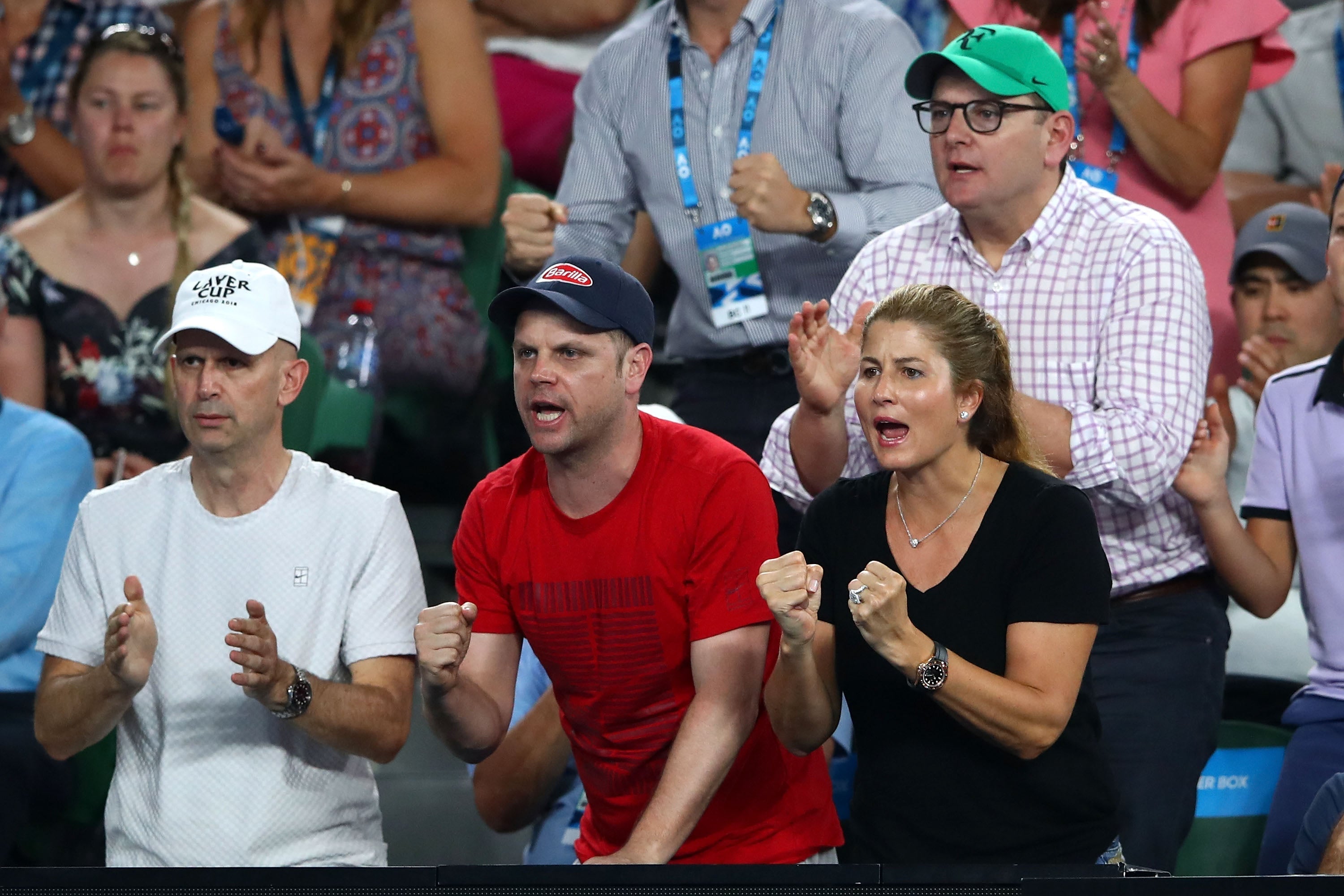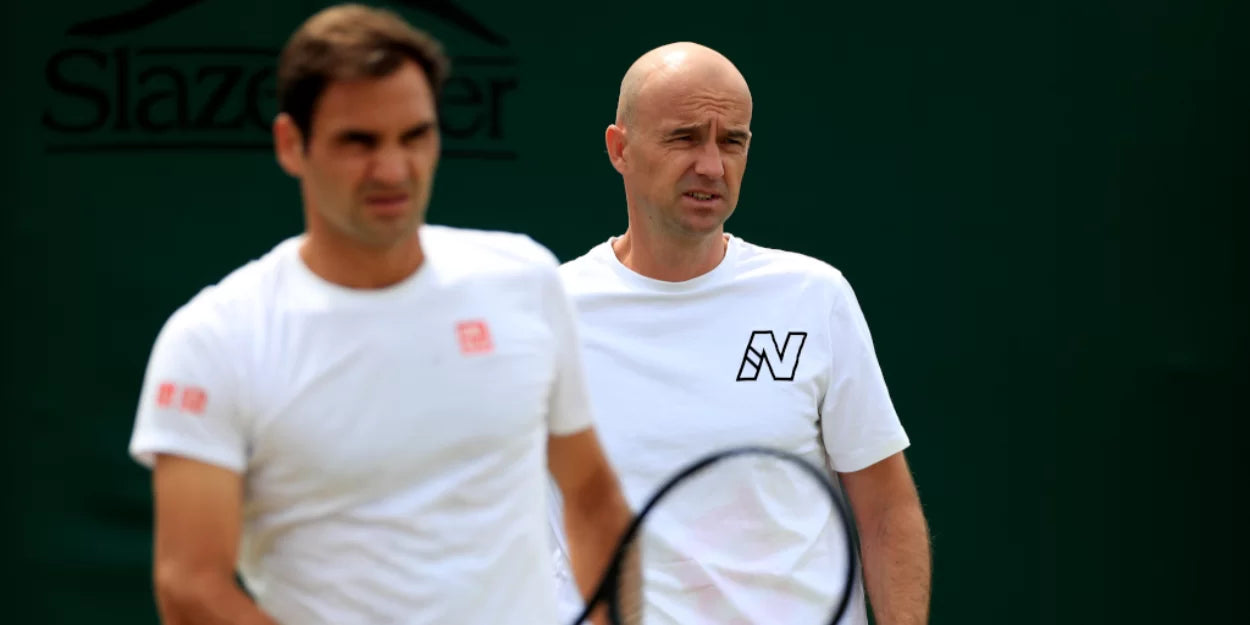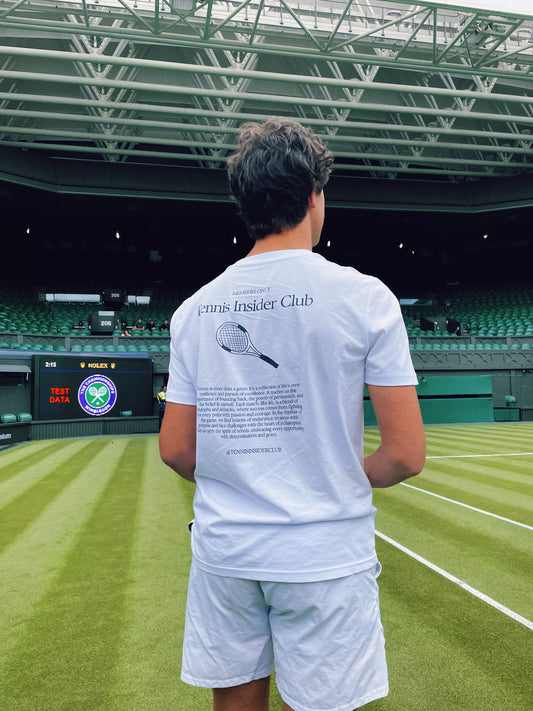Dating an athlete doesn’t make you an expert on their sport. Even if you already know the game, humility is your starting point. It isn’t about you; it’s about them. They were on this path long before you arrived, and the first act of love is to respect that.
No one climbs to the top of a sport without being hard on themselves, sometimes even radical. Which is why one of the greatest gifts you can give your partner is simple: remind her she’s loved regardless of the score. That just being there is already extraordinary. That your love is not tied to results. If it is, then do her the favor of leaving. Let her live in peace.
Know Your Role
In tennis, sharing a life means sharing sacrifices. You may even have to step back from your own work for a time. That doesn’t mean you become her employee. If you want to support professionally, you can. But let coaches coach; let agents agent. You have a more important role to play: the keeper of joy.
You can be the one who makes her smile before a match, who makes her laugh on a practice bench. Fun doesn’t sabotage performance; it fuels it. Confidence, love, lightness: they all show up on the court.
The temptation will come: “I know better.” Resist it. Because you probably don’t. Stay humble. And if you can’t, remember, this isn’t about your ambitions; it’s about hers. Your job isn’t to hand her answers. It’s to help her ask the right questions: Why am I doing this? How do I want to do it? Is that ranking or trophy worth my mental health? Guide, don’t dictate.
Love the Person, Not the Athlete
Be clear: you’re there for the human being, not the athlete. If she started the relationship busy, don’t make her guilty for staying busy. Instead, talk openly about the future: two, five, ten years from now. Share your vision, but don’t impose it. Yes, athletes can seem selfish. But that’s how they’ve trained themselves to survive. Meet that with understanding, not resentment.
Why Not to Be the Coach
Even if you have coaching experience, ask yourself: why risk the most important thing? If you want to be her coach more than her partner, then break up and apply for the job. Otherwise, don’t complicate what’s already fragile.
I know, because I lived it. I disagreed with parts of my partner’s approach: her playing style, her refusal to build certain tools. Later, top coaches echoed my concerns. Maybe I was right; maybe not. But I stayed silent. And I’m glad I did. Today, I’m married to her. We’ve built the most beautiful relationship I’ve ever known. And the truth? Whether I was right or wrong doesn’t matter; love mattered more.
What Support Looks Like
Be her partner. Her fan. Her cheerleader. Make sure she’s surrounded by a great team. Celebrate victories from the sideline. Her wins are yours too. You don’t need to be the coach to share in them.
In tough moments, avoid judgment. Don’t tell her she should feel grateful. Don’t prescribe how she should process defeat. Listen. Guide. Empower. Love.
The Phrases That Hurt
Think about it. The worst thing you can say to someone with depression is: “Everything will be fine.” For tennis players, the equivalent is: “You’re so lucky to be here.” Sure, tennis is glamorous. But dismissing their pain only deepens it. Their struggle isn’t about whether tennis is “cool.” It’s about years of pressure, sacrifice, and scars most of us can’t comprehend.
Or consider when she says: “I hate tennis.”
That’s not true. Tennis has no soul; it can’t be hated. What she hates might be the imbalance, the judgment, or the conditional love of parents and fans. Your role is to help her untangle those feelings, through questions, patience, and listening.
And If You Think You’d Be a Great Coach…
Then go be one. With someone else. If no one hires you, maybe you aren’t as good as you think. But don’t gamble the relationship. You’ll still share experiences; still grow together. Just without confusing love with professional ambition.
A Final Note
You don’t have to do everything you’re capable of. Just because you can be a world-class athlete doesn’t mean you must be one.
If your partner no longer feels joy in competing, what’s the point? The scoreboard won’t matter if the person you love feels empty. Remind them they are loved, not for what they win, but for who they are. Show them that life stretches far beyond the boundaries of a court.
Empower them. Support them. Because yes, tennis is great. But there are other joys; other pursuits; other lives waiting to be lived. At some moment, it might make sense to step away. And that’s not failure.
Winners quit all the time. The secret is knowing when.









